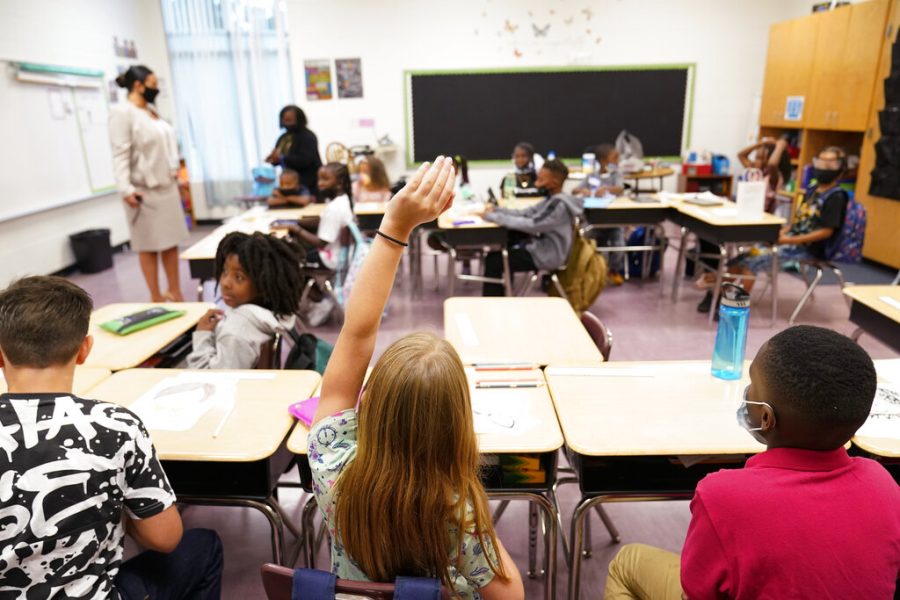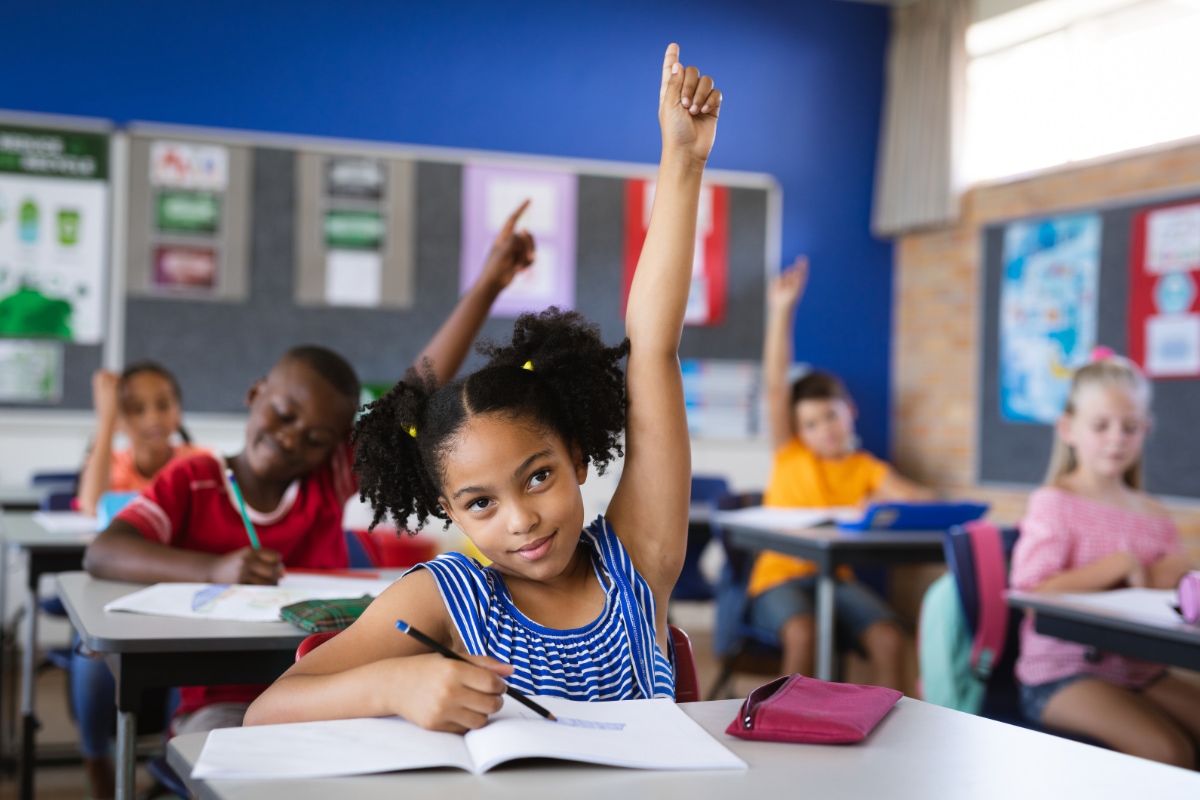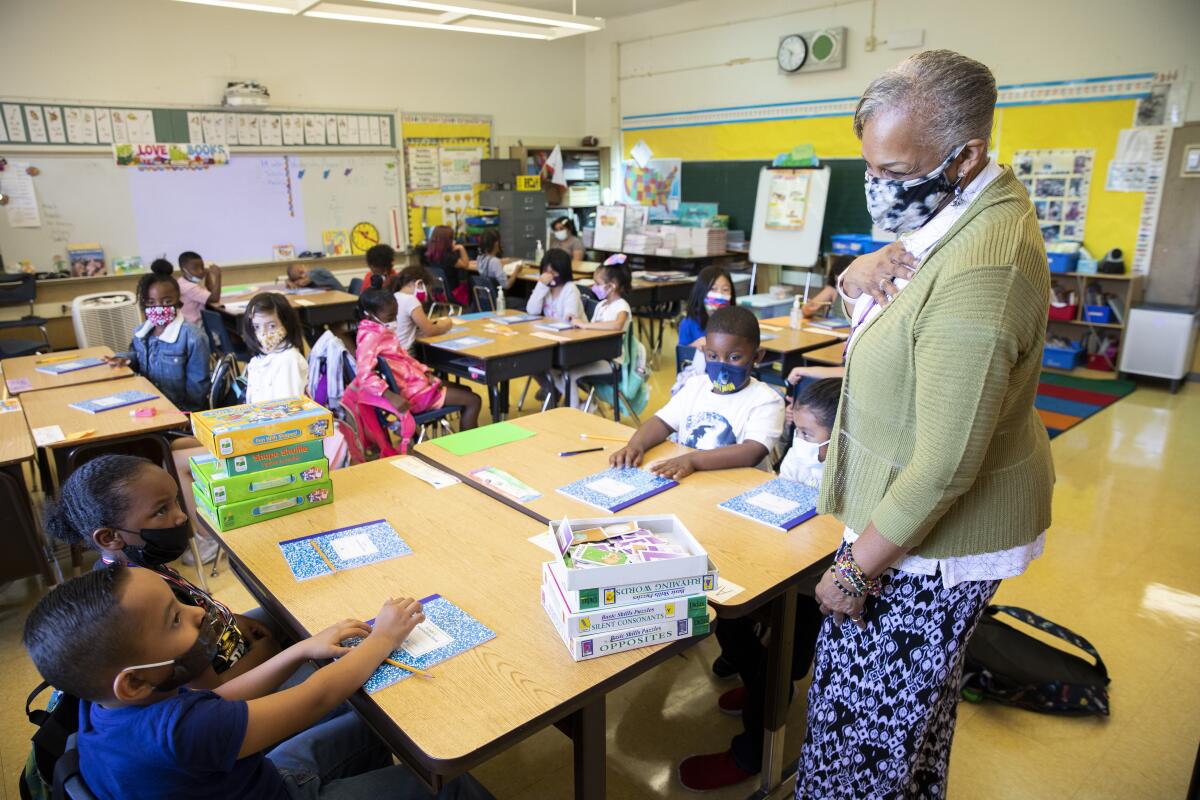The Significance of Regional Support to Save Temecula Schools Today
The Significance of Regional Support to Save Temecula Schools Today
Blog Article
Comprehending the Relevance of Colleges in Kid Development and Community Growth
Schools work as essential institutions for kid development and area development, offering atmospheres where scholastic achievements are matched by the cultivation of social abilities and exposure to diverse point of views. These educational setups not just advertise crucial reasoning and effective interaction however also foster compassion with collaborative projects. Additionally, institutions' involvement with regional areas through service-learning initiatives strengthens the bond in between families and universities. This symbiotic relationship highlights the importance of schools in nurturing energetic citizenship and long-lasting knowing routines. Nonetheless, what are the particular mechanisms by which these organizations attain such profound effects?
Academic Achievement
Academic achievement works as a keystone of child growth, supplying the foundation whereupon future knowing and success are built. Colleges play an essential duty in promoting this academic development, providing organized atmospheres where children can acquire important knowledge and cognitive skills. Standardized educational program guarantee that trainees gain efficiency in core topics such as mathematics, scientific research, and language arts, which are crucial for both greater education and expert chances.
In enhancement to passing on essential scholastic skills, colleges likewise grow critical reasoning, problem-solving capacities, and intellectual interest. These cognitive proficiencies are vital for browsing complex real-world circumstances and adjusting to the ever-evolving demands of the modern-day work environment. Teachers, as facilitators of learning, utilize varied pedagogical methods to provide to different understanding styles, thereby making the most of private pupil potential.
Additionally, academic success is carefully linked to self-confidence and inspiration. Children who experience scholastic success are much more most likely to create a positive self-concept and a lifelong enthusiasm for understanding. Schools also supply numerous sources, such as collections and technology, which even more improve the educational experience and prepare students for a technically innovative culture.
Social Ability Advancement
Beyond scholastic success, the function of institutions in social ability advancement is vital. Schools offer as a key venue for youngsters to discover and practice necessary social abilities such as communication, participation, and problem resolution. In the structured environment of a class, students engage with peers, educators, and various other institution staff, using many chances to establish these critical capabilities.
Efficient social skill advancement in colleges is assisted in with group activities, collaborative tasks, and extracurricular programs. These interactions assist pupils recognize social norms, construct compassion, and promote a sense of community. For instance, team tasks educate pupils just how to work with each other towards a typical goal, pay attention to different perspectives, and browse disputes constructively.

The cultivation of social skills throughout academic year lays a structure for future personal and expert partnerships. Save Temecula Schools. As students grow, the capability to properly team up and interact comes to be increasingly essential, emphasizing the college's essential function in all natural youngster development
Exposure to Diversity
Exposure to diversity in institutions is basic to cultivating a comprehensive state of mind and expanding pupils' viewpoints. Schools offer as a microcosm of the more comprehensive society, and experiencing diverse cultures, languages, and socioeconomic backgrounds within this atmosphere furnishes trainees with necessary abilities for browsing a significantly globalized globe. This direct exposure urges empathy, lowers bias, and advertises shared respect amongst peers.
Research study suggests that pupils who connect with peers from diverse backgrounds exhibit much better analytical skills and creative thinking. This understanding of variety prepares trainees for future workplaces that worth modern competence - Save Temecula Schools.

Community Interaction
The benefits of diverse class prolong beyond the school walls, promoting a strong sense of area interaction among trainees. By connecting with peers from various cultural, socioeconomic, and ethnic backgrounds, students get a broader viewpoint and a recognition for variety. This direct exposure motivates them to become energetic people that agree to add favorably to their communities.
Colleges that highlight neighborhood involvement frequently include service-learning projects, which enable trainees to address real-world problems while applying scholastic skills. These jobs not only enhance pupils' understanding of their coursework however likewise infuse a feeling of duty and compassion. Additionally, collaborations in between institutions and regional organizations offer trainees with chances to take part in community occasions, better solidifying their duty as aggressive neighborhood members.
In addition, parental and area involvement in institutions reinforces the bond between academic institutions and the areas they serve. With these initiatives, colleges play a pivotal duty in nurturing neighborhood interaction and cultivating social growth.
Lifelong Understanding Practices
Establishing long-lasting understanding habits is essential for a kid's constant development and flexibility in an ever-changing globe. Colleges play an essential duty in instilling these habits by creating an environment that promotes interest, critical thinking, and a love for knowledge. Via extracurricular tasks and varied curricula, teachers urge pupils to explore different topics, analyze details seriously, and use their finding out to real-world scenarios.

In addition, schools offer a structured environment where children can develop self-discipline and time management skills, both of which are important for constant discovering. By highlighting the value of setting goals, mirroring on development, and adapting techniques, instructional organizations prepare trainees to navigate the complexities of adult life, guaranteeing they continue to be long-lasting learners and contributors to culture.
Final Thought
In final thought, institutions are important in promoting kid growth and community growth by offering atmospheres helpful to scholastic accomplishment, social skill advancement, and direct exposure to variety. Inevitably, colleges grow long-lasting understanding behaviors, equipping individuals with the necessary expertise and abilities to contribute positively to society.
In the structured atmosphere of a classroom, trainees connect with peers, teachers, and other school staff, using countless learn the facts here now opportunities to develop these crucial capabilities.
In significance, direct exposure to variety within colleges not just improves individual students but likewise strengthens the social material of the community as a whole.
The advantages of varied class prolong beyond the school wall surfaces, cultivating a solid feeling of community navigate to these guys involvement amongst trainees.Institutions that emphasize area interaction commonly include service-learning projects, which permit trainees to attend to real-world problems while applying academic skills. Collaborations in between institutions and neighborhood companies supply students with opportunities to take part in community occasions, better solidifying their role as positive community participants.
Report this page